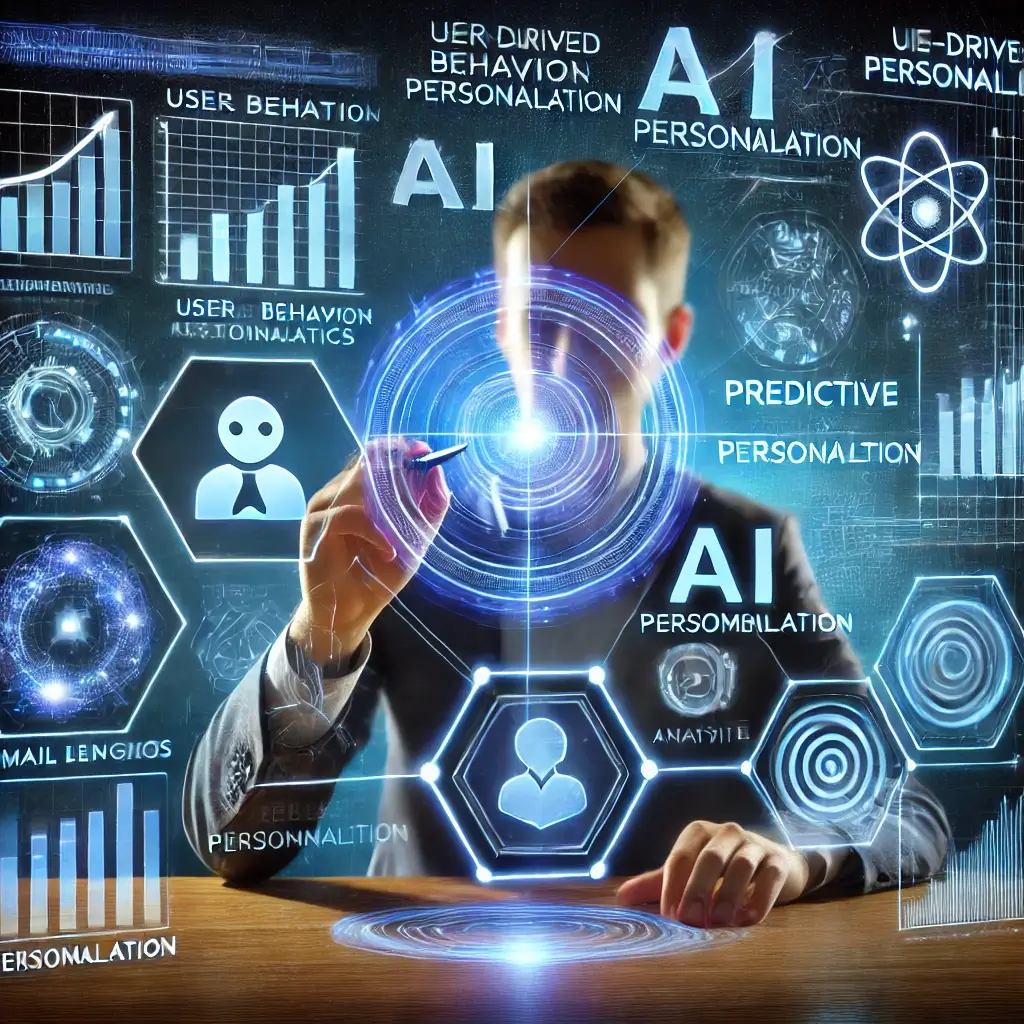The Revolution of Personalized Digital Experiences
In the ever-evolving landscape of digital marketing, personalization stands as a cornerstone for engaging consumers and driving conversions. With the growing ubiquity of artificial intelligence (AI), marketers now have unparalleled tools to tailor content to individual preferences and behaviors. A staggering 80% of consumers express a preference for brands that deliver personalized experiences (Statista, 2024), underlining the critical importance of this approach. By 2025, advancements in AI promise to take content personalization to unprecedented levels, offering hyper-relevant experiences at scale (Forbes, 2023).
The Strategic Imperative for Modern Marketers
For marketing executives and SEO professionals, understanding and implementing AI-driven personalization techniques is more than just an advantage—it’s a necessity. These technologies empower brands to analyze vast datasets, decipher consumer intent, and deliver dynamic, personalized content across various touchpoints. From creating targeted email campaigns to enhancing website experiences, AI offers marketers the tools needed to forge deeper connections with their audience while achieving a higher return on investment (ROI).
Navigating the Future of AI-Powered Marketing
This article delves into the advanced techniques driving AI-powered personalization, highlighting real-world applications, case studies, and actionable strategies to remain competitive in 2025 and beyond.
Transformative AI Approaches for Customer-Centric Marketing
AI Techniques for Personalization
Crafting Tailored Digital Environments in Real-Time
Dynamic Website Personalization
AI tools such as Optimizely and Personyze enable real-time adaptation of website content based on user interactions. Features include:
- Personalized banners tailored to individual preferences.
- Location-specific offers that resonate with users’ demographics.
- Product recommendations aligned with browsing history.
Case Study: An online retail platform implemented AI to display region-specific promotions, leading to a 30% increase in conversion rates and a 20% drop in bounce rates (HubSpot, 2024).
Revolutionizing Email Marketing Through Intelligent Automation
AI-Enhanced Email Campaigns
Email marketing continues to thrive as a personalization channel. AI platforms like Klaviyo and HubSpot enable segmentation based on behavior, engagement, and purchase history. Key benefits include:
- Dynamic subject lines and content tailored to individual preferences.
- Predictive analytics to determine optimal timing for email delivery.
Example: A subscription-based service utilized AI to segment audiences, achieving a 25% uptick in open rates and a 15% boost in subscriptions (Forbes, 2023).
Leveraging User Behavior to Enhance Discovery
Content Recommendation Engines
Widely used by giants like Netflix and Amazon, recommendation engines analyze user activity to suggest highly relevant content. Marketers can leverage these tools to:
- Enhance product discovery through tailored suggestions.
- Boost user engagement and retention on digital platforms.
Case Study: A streaming platform’s AI-driven recommendation system increased daily engagement by 40% and improved retention rates (Statista, 2024).
Anticipating Customer Needs Before They Arise
Predictive Personalization
Predictive analytics employs AI to anticipate user behaviors and preferences, allowing brands to:
- Deliver timely content that aligns with predicted needs.
- Proactively address customer pain points with relevant solutions.
Example: A travel agency targeted customers likely to book last-minute trips with exclusive offers, driving a 35% increase in bookings (HubSpot, 2024).
Balancing Innovation with Responsible AI Implementation
Ethical Considerations and Challenges
While AI offers remarkable opportunities, its implementation is not without challenges. Ethical concerns such as data privacy and algorithmic bias must be addressed to build consumer trust. For instance:
- Transparency in data collection and usage is critical to avoid alienating customers.
- Regular audits of AI algorithms can mitigate unintended biases that may affect personalization outcomes.
Adhering to ethical guidelines ensures long-term success and safeguards brand reputation in an AI-driven world.
Embracing the Future of Personalized Marketing
Conclusion
As AI technologies continue to advance, the potential for personalization in marketing grows exponentially. Techniques such as dynamic website personalization, AI-enhanced email campaigns, content recommendation engines, and predictive personalization offer transformative opportunities for brands to engage consumers on a deeper level. By integrating ethical practices and addressing challenges proactively, marketers can maximize the benefits of AI-driven personalization. By 2025, those who embrace these innovations will not only improve customer satisfaction but also secure a competitive edge in an increasingly personalized digital world.
Sources and Further Reading
References
Statista. “The Impact of Personalization on Consumer Behavior.” Published 2024. Link
HubSpot. “AI-Powered Email Marketing: Best Practices for 2025.” Published 2024. Link
Forbes. “Predictive Analytics in Modern Marketing.” Published 2023. Link
